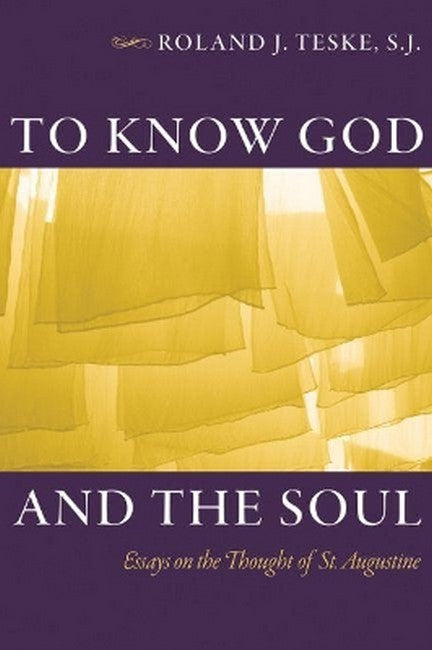Roland J. Teske, S.J., is Donald J. Schuenke Professor of Philosophy at Marquette University. The highly respected translator of more than twenty books, including St. Augustine's Anti-Pelagian Works, Letters, and most recently The Anti-Manichean Works as well as writings of William of Auvergne and Henry of Ghent, Teske is also author of Paradoxes of Time in St. Augustine and of numerous articles on Augustine, William, and Henry.
Request Academic Copy
Please copy the ISBN for submitting review copy form
Description
A valuable contribution. Because of its close reading of dense texts, the book will be of most use to graduate students and specialists in Augustine's philosophy. Still, the rigorous analysis and patient, clear examination of some of Augustine's most subtle thoughts offer an example of the scholarly virtues we have long come to appreciate in this author."" - Theological Studies""Over the past three decades Fr. Roland J. Teske, S.J., has consistently crafted well-researched, incisive, provocative, and influential studies on St. Augustine (xiv), making him both an exemplary and leading scholar in the field, and we are fortunate that he has now published in one volume, To Know God and the Soul, what he regards as ""some of... [his]... best efforts at understanding Augustine... Teske's volume is characterized by superb scholarship, excellent insights, and fruitful suggestions-both explicit and implicit-concerning the direction of future scholarship in the field. This collection of articles manifests a very generous, sustained, and significant contribution to Augustinian studies, contains required reading for student and scholar alike, and ought to inspire more study both of Augustine and Teske's insightful commentaries thereon."" - Barry David, American Catholic Philosophical Quarterly ""This would be an excellent text for senior courses in theology or philosophy... A first-rate model for comprehending what is involved in the work of contemporary scholarship: how to encounter an historical figure, how to work with original sources, and how to navigate through critical literature, all in view of reaching measured judgment and fashioning an original contribution."" - Journal of Early Christian Studies

